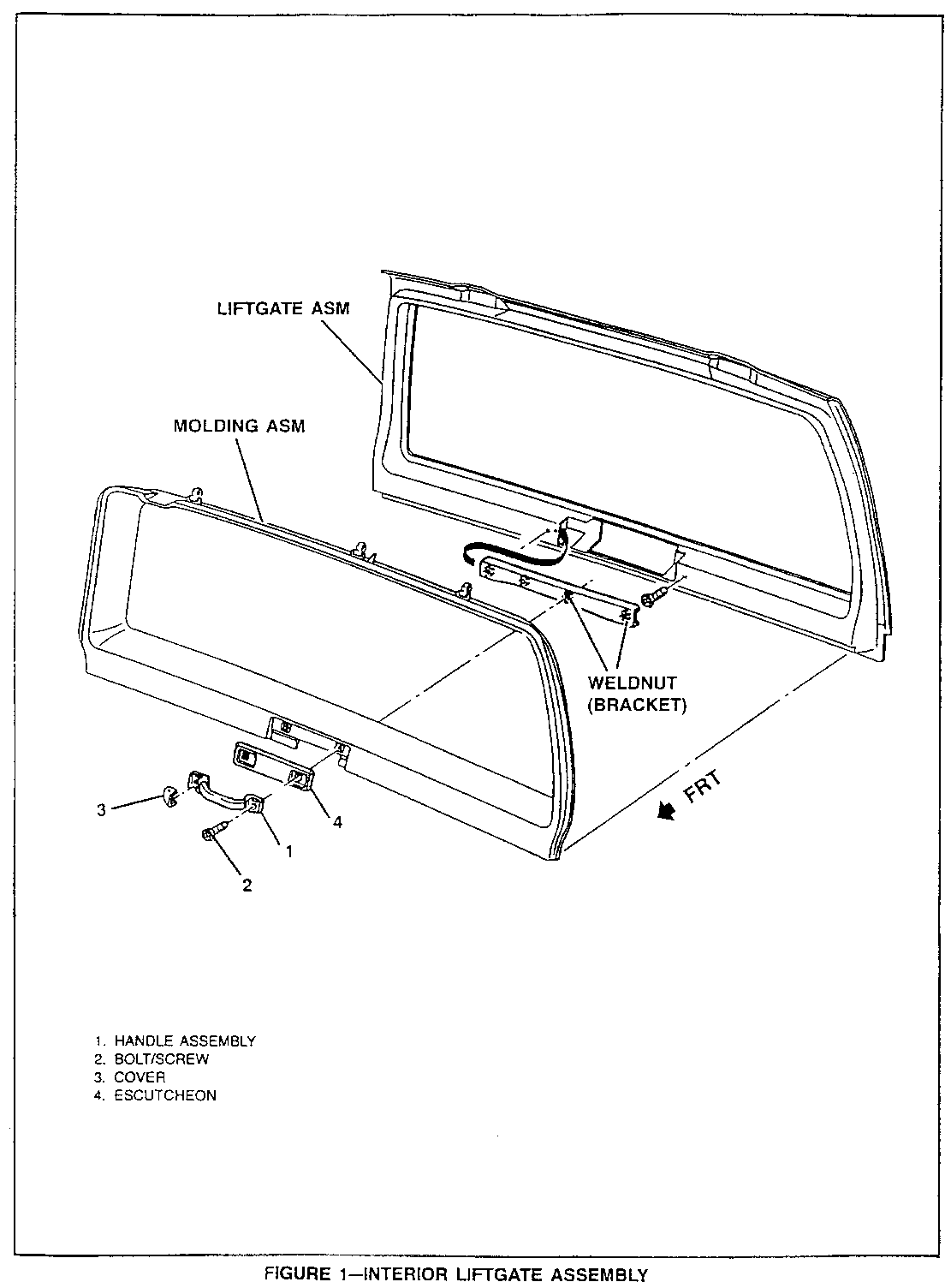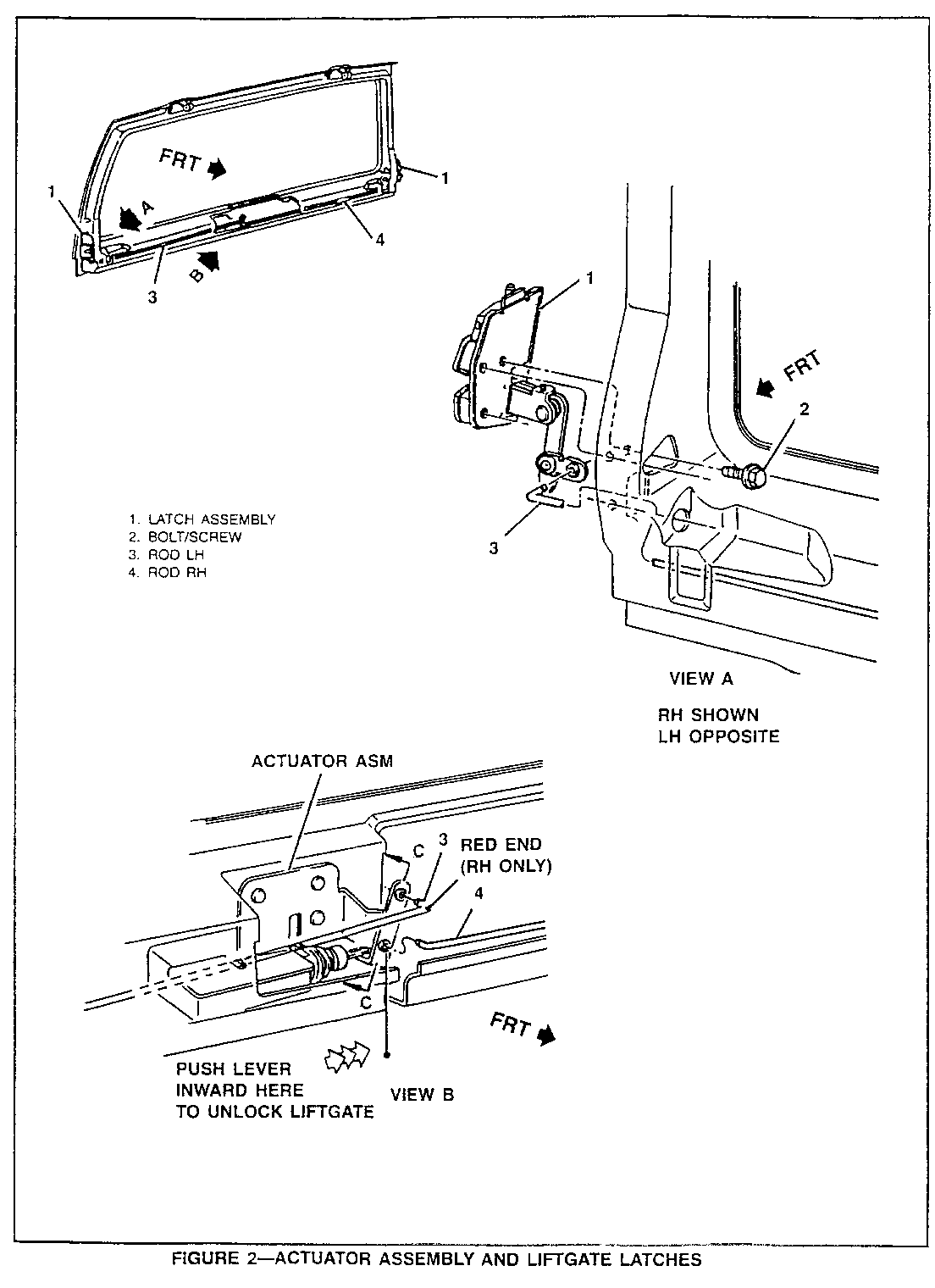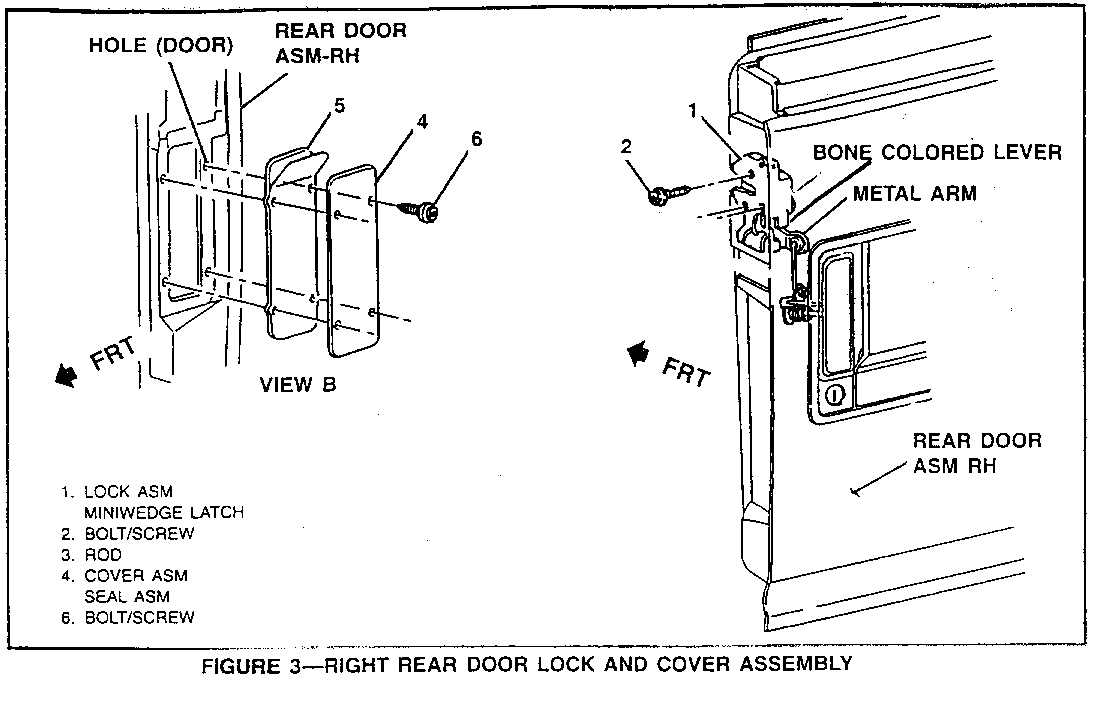REAR LIFTGATE OR LOWER DOORS WILL NOT OPEN VAN W/RPO E-54

SUBJECT: REAR LIFTGATE OR LOWER DOORS WILL NOT OPEN (SERVICE PROCEDURES)
VEHICLES AFFECTED: 1992-93 M/L VANS WITH RPO E54 (DUTCH DOORS) CHEVROLET ASTRO, GMC SAFARI
Some owners of 1992-1993 M/L Vans equipped with RPO E-54(Dutch Doors) may experience a condition where the rear liftgate or the rear lower doors will not release/unlock with the key or the hatch release switch.
CONDITION "1"
The liftgate will not open with the key or the hatch release switch.
Verify that the rear doors and liftgate are receiving power, good checkpoints are electrical connections C413 (The door lock module located in the jack storage compartment), C203 (At the liftgate release switch) and C300 (At the lower right-hand A pillar). For further detail refer to the 1992 Electrical Diagrams and Diagnosis Manual. Check the power/accessory circuit breaker and verify that it is not open. If the breaker is open locate the source of the overload and replace or reset the breaker.
SERVICE PROCEDURE: (Reference Figure 1 and 2) --------------------------------------------- 1) Remove the interior handle screw covers.
2) Remove the interior handle screws.
3) Remove the handle and the interior handle cover (Figure 1).
4) Locate the latch control rods that connect the actuator levers, push the lever inward with a screw driver or equivalent to manually release the liftgate (Figure 2, View B).
5) Locate and repair the source of the inoperable condition.
6) Install the handle and the interior handle cover.
7) Install the interior handle screws.
8) Install the interior handle screw covers.
CONDITION "2" (Reference Figure 3)
The rear lower doors will not unlock with the key or the hatch release switch.
SERVICE PROCEDURE:
1) Remove the right door interior trim panel.
2) Locate and depress the bone colored lever on the actuator upward to unlock the miniwedge latch.
3) Push down on the metal arm (Figure 3), allowing you to open the lower doors.
4) Locate and repair the source of the inoperable condition.
5) Install the right rear door interior door trim panel.
WARRANTY INFORMATION:
For vehicles repaired under warranty, use the applicable labour operation numbers and times found in the appropriate Labour Time Guide.



General Motors bulletins are intended for use by professional technicians, not a "do-it-yourselfer". They are written to inform those technicians of conditions that may occur on some vehicles, or to provide information that could assist in the proper service of a vehicle. Properly trained technicians have the equipment, tools, safety instructions and know-how to do a job properly and safely. If a condition is described, do not assume that the bulletin applies to your vehicle, or that your vehicle will have that condition. See a General Motors dealer servicing your brand of General Motors vehicle for information on whether your vehicle may benefit from the information.
